
views
- Obsession is a feeling of intense infatuation while love is a feeling of strong affection.
- Someone who is obsessed often has a need for constant contact, acts possessive, and ignores their partner’s boundaries.
- Distracting oneself by spending time with other friends or pursuing personal hobbies is one way to help get rid of obsessive thoughts.
What's the difference between love and obsession?
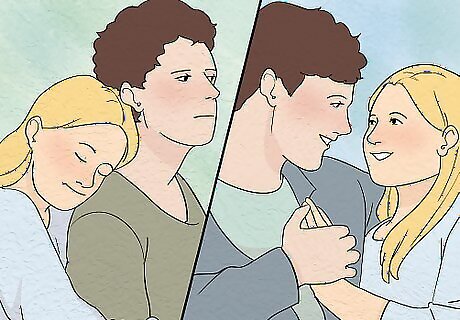
Obsession is a feeling of intense infatuation while love is rooted in mutual care and support. Someone who is obsessed with their partner often sees them as someone who needs constant protection and monitoring. This often causes them to become infatuated with being by their partner and usually manifests as very possessive behaviors. On the other hand, love is when two partners form a deep emotional bond and support and care for each other equally. Someone who is very obsessive when it comes to romantic relationships may suffer from “obsessive love disorder.” Despite its name, it’s not an official mental or physical disorder. Instead, it’s classified as a mental and physical state. Obsession can be a very unhealthy emotion and sometimes leads to one person manipulating the other. Oftentimes, love turns into obsession due to things like unhealthy attachment styles, mental health disorders, or low self-esteem.
Signs of Obsession

A need for constant contact This is one of the most obvious signs of an obsessive relationship. Constantly texting and calling their partner, checking up on them frequently even at their place of work or school, and even stalking them when they’re with other people are all signs of an obsessed person. Such behaviors can also be signs of an anxious attachment style or a fear of abandonment.
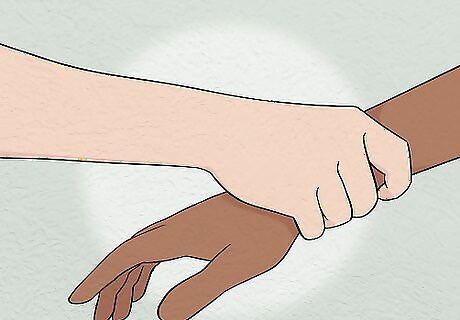
Acting possessive It’s natural to be a bit possessive in a relationship. However, when someone takes these possessive behaviors to an extreme level, they’re acting more like an obsessed person rather than a person who’s in love. They might feel extremely jealous when they see their partner hanging out with other people, be more extreme with public displays of affection, or constantly monitor their partner’s whereabouts. These possessive behaviors also have the potential to turn abusive. For example, someone might get angry when their partner talks to someone of the opposite sex, or they might insult or belittle them to make them more dependent. Rushing the relationship is another possessive behavior and a sign of an obsessed person. They may say “I love you” even though they haven’t been dating their partner for that long, or they might suggest things like moving in or getting married before they’re really ready.
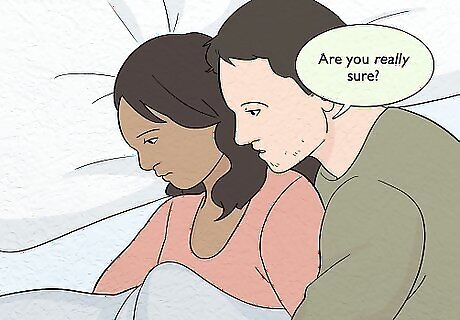
Constantly seeking validation Someone who feels very insecure about themselves and/or their relationship might start obsessing over maintaining a “perfect” relationship. If a person has low self-esteem, they may constantly seek validation from their partner and might smother their partner in order to make up for their perceived shortcomings. Low self-esteem can also lead to extreme feelings of jealousy. For example, someone who is constantly seeking validation might seek their partner’s approval before making any kind of decision so that they don’t run the risk of upsetting the other person. They might also not give their honest opinion when talking to their partner out of fear that their partner will get upset and leave them.
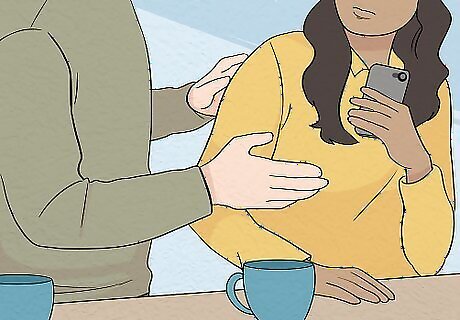
Controlling and/or manipulative behaviors An obsessed person usually wants to keep their partner all to themselves. This can lead to them being overly controlling or outright manipulative in certain situations. For example, they might insist that their partner get rid of any photos of their ex. In more extreme cases, they might prevent or ban their partner from seeing their family or friends. These controlling and manipulative behaviors can also manifest in the forms of physical, verbal, and/or emotional abuse.

Ignoring personal needs Someone with obsessive love disorder might push down their own wants and needs in order to satisfy their partner. For example, they might stop hanging out with their friends in order to spend more time with their partner, or they may give up some of their hobbies. They might also just blindly agree to whatever their partner wants in order to please them.

Distrust Someone who feels more obsession than love for their partner may not completely trust that their partner will remain faithful to them. This could possibly stem from low self-esteem, an anxious attachment style, or a combination of other factors. They might constantly ask their partner where they are, what they’re doing, and who they’re with. Even if their partner is telling the truth, an obsessed person might still be suspicious.

Ignoring boundaries When a person is obsessed with their partner, they’re likely to take extreme measures to make sure their partner stays with them. This can lead to them ignoring their partner’s boundaries and personal space. For example, an obsessed person might read through their partner’s text messages, go through their personal belongings, or barge in when they’re spending time with other friends or family.

Surface level conversations Oftentimes, someone who’s only obsessed with their partner but not actually in love won’t actually try to get to know their partner on a deeper level. They may just simply like the idea of their partner being with them, and so won’t make an effort to form a deeper connection. This can lead to conversations being very surface-level, and partners in this kind of relationship might not actually know that much about each other.
Traits of a Loving Relationship

Independence The hallmark of any healthy loving relationship is the ability of partners to maintain their independence and pursue their individual interests and goals. People who truly love each other will support both their independent endeavors and team efforts equally. Love also isn’t about being together 24/7. Instead, people who truly love each other are comfortable spending time away from each other to pursue their own interests.

Honesty People who truly love each other aren’t afraid to be honest with their partner, even if what they’re saying may be a bit difficult to hear. Instead of obsessing over how their partner will react (and expecting the worst), they are usually very comfortable with speaking their mind so that their partner clearly knows what they want and need. Partners in a loving relationship will usually also be accepting of each other’s feedback. If one person points out something they don’t like, the other person likely won’t get offended and will make an effort to improve themself for their partner.

Compromise In order to keep their love going strong, people in a healthy relationship will take the time to sit down and talk through any issues or concerns they have until they’re both satisfied with the result. Instead of one person taking control and expecting the other to follow, people who love each other will work to find a balance in their relationship that benefits both of them. For example, instead of just one person taking control of a couple’s finances, they might sit down and come up with a plan that allows each partner equal access to their funds and equal responsibility. Reader Poll: We asked 527 wikiHow readers how they would handle conflicts in their relationships, and 57% said they would work through it until they found a resolution. [Take Poll]

Mutual respect People who love each other respect each other’s boundaries and individual opinions. They don’t judge one another even if they happen to disagree, and will likely open up a dialogue to resolve any conflicts. Each person usually feels confident in setting their own boundaries and respect when their partner tells them “no.” Partners who love each other are also willing to compromise on how fast they’re moving in their relationship. If one person feels they’re rushing things, the other person will likely respect their decision and work to match their pace.

Vulnerability Someone who knows that their partner truly loves them isn’t afraid to open up and be a bit vulnerable. In order to form a deeper emotional bond, partners in a loving relationship are often comfortable sharing more intimate and personal details with each other. They are also genuinely interested in hearing about the other person’s life and aspirations. Rather than surface-level conversations, people in a loving relationship are open to having deeper conversations about things like work, their relationship, or even deep philosophical questions.

Caregiving People in love will do whatever they can to make sure their partner knows how much they’re loved and appreciated. This might be little things like saying “I love you” every day or giving heartfelt compliments. It could also be bigger gestures, like buying gifts or looking after their partner when they’re sick or feeling down. While someone with obsessive love disorder might think that they’re taking care of their partner, oftentimes their actions are more controlling and don’t actually take their partner’s feelings into consideration.
Overcoming Obsession

Write down your honest feelings about the other person. If you’ve noticed yourself showing these kinds of obsessive behaviors, take a moment to sit down and reflect on your feelings. Write down all of the emotions you feel for that person and any obsessive thoughts that come to mind. When you’re done, rip up the paper to symbolize how you’re getting rid of those obsessive and intrusive thoughts.

Take a break from social media. Constantly seeing the object of your obsession all over social media will probably only cause you to think about them more. Take a break from Twitter, Instagram, Snapchat, and any other social media sites where you might see them. You’re not cutting them out of your life completely, just taking a break.

Distract yourself with a hobby or by spending time with others. A great way to get your mind off of someone is to keep your thoughts occupied with something else. Pursue any hobbies you enjoy or find a new one like painting, reading, exercising, or caring for a pet. Also, be sure to meet up with friends and family in your spare time. They might be able to help take your mind off of the other person.
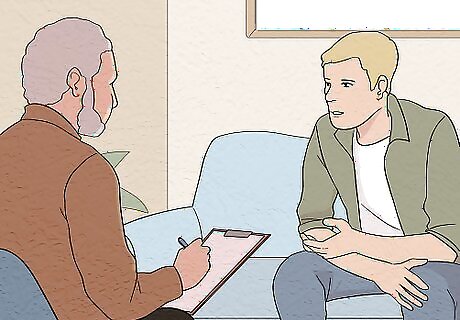
Talk to a therapist to try and work through your thoughts. If your obsession with another person is affecting your daily life and/or putting strain on your relationship, consider talking to a therapist. They may be able to prescribe you medications like antidepressants or mood stabilizers, and they may also be able to recommend you things like couple’s therapy if you’re having troubles in your relationship. Find a licensed therapist at BetterHelp today.
Obsessive Love Disorder Causes

Mental health disorders Obsessive love disorder itself isn’t technically a mental health disorder, but other mental health disorders can cause it or accompany it. Disorders that are often associated with obsessive love disorder include: Depression Obsessive-compulsive disorder (OCD) Delusional jealousy Attachment disorders Borderline personality disorder (BPD) Post-traumatic stress disorder (PTSD) If you suspect you may have any of these mental health disorders, talk to a therapist to get an official diagnosis and professional treatment.

Past trauma In some cases, people experience traumatic events that leave them fearful of abandonment, such as the death of a loved one. This can cause them to form obsessive behaviors when it comes to their partner or other people in their life.

Cultural norms and expectations Some portrayals of relationships in the media can make it seem like love is equivalent to doing everything in one’s power to make sure their partner stays with them. The social construct of “toxic masculinity” can make it seem like men need to be controlling and dominant in their relationships, and that such behavior is acceptable. In addition to that, people’s expectations for a relationship to be “perfect” can cause them to obsess over every little thing and their partner. Parents also play a role in shaping how their children come to view healthy relationships. If kids grow up seeing a relationship fueled by obsession rather than love, they might come to view this as normal and repeat those same behaviors later on.




















Comments
0 comment